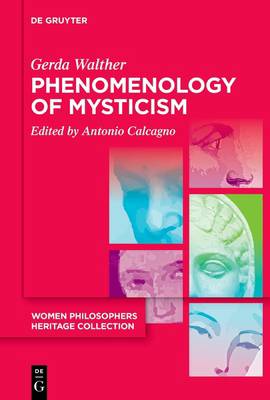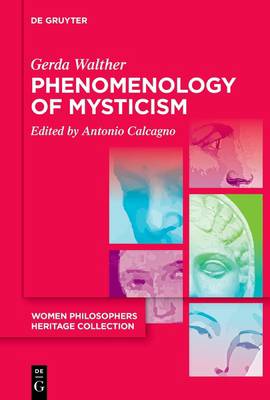
- Afhalen na 1 uur in een winkel met voorraad
- Gratis thuislevering in België vanaf € 30
- Ruim aanbod met 7 miljoen producten
- Afhalen na 1 uur in een winkel met voorraad
- Gratis thuislevering in België vanaf € 30
- Ruim aanbod met 7 miljoen producten
Omschrijving
Mystical experience continues to fascinate human beings across different cultures and traditions. Deploying the phenomenological method, Gerda Walther's Phenomenology of Mysticism explores the conditions that make mystical experience possible, that is, how it is that human beings make sense of mystical phenomena. Unlike historical and anthropological sudies of mysticism across cultures, Walther maintains that to phenomenlogically grasp the sense of mystical experience certain conditions must obtain: All encounters with a living divinity require the relating subject to be configured as a human person consituted as a lived unity of body, psyche, and what Walther calls a fundamental essence or spirit. Without such a configuration of the human person, unique intersubjective experiences with a divinity prove impossible. For Walther, such personal relations lay the ground for human interiorty to encounter God and the uniqueness of God to become manifest to human beings. Without Walther's personal structure, encounter with and understanding what a divinity reveals cannot be expereinced. Walther presents the subjective and intersubjective elements that make mystical experience possible.
Specificaties
Betrokkenen
- Auteur(s):
- Vertaler(s):
- Uitgeverij:
Inhoud
- Aantal bladzijden:
- 275
- Taal:
- Engels
- Reeks:
Eigenschappen
- Productcode (EAN):
- 9783110764864
- Verschijningsdatum:
- 13/11/2026
- Uitvoering:
- Paperback
- Formaat:
- Trade paperback (VS)
- Afmetingen:
- 155 mm x 230 mm
- Gewicht:
- 499 g

Alleen bij Standaard Boekhandel
Beoordelingen
We publiceren alleen reviews die voldoen aan de voorwaarden voor reviews. Bekijk onze voorwaarden voor reviews.








